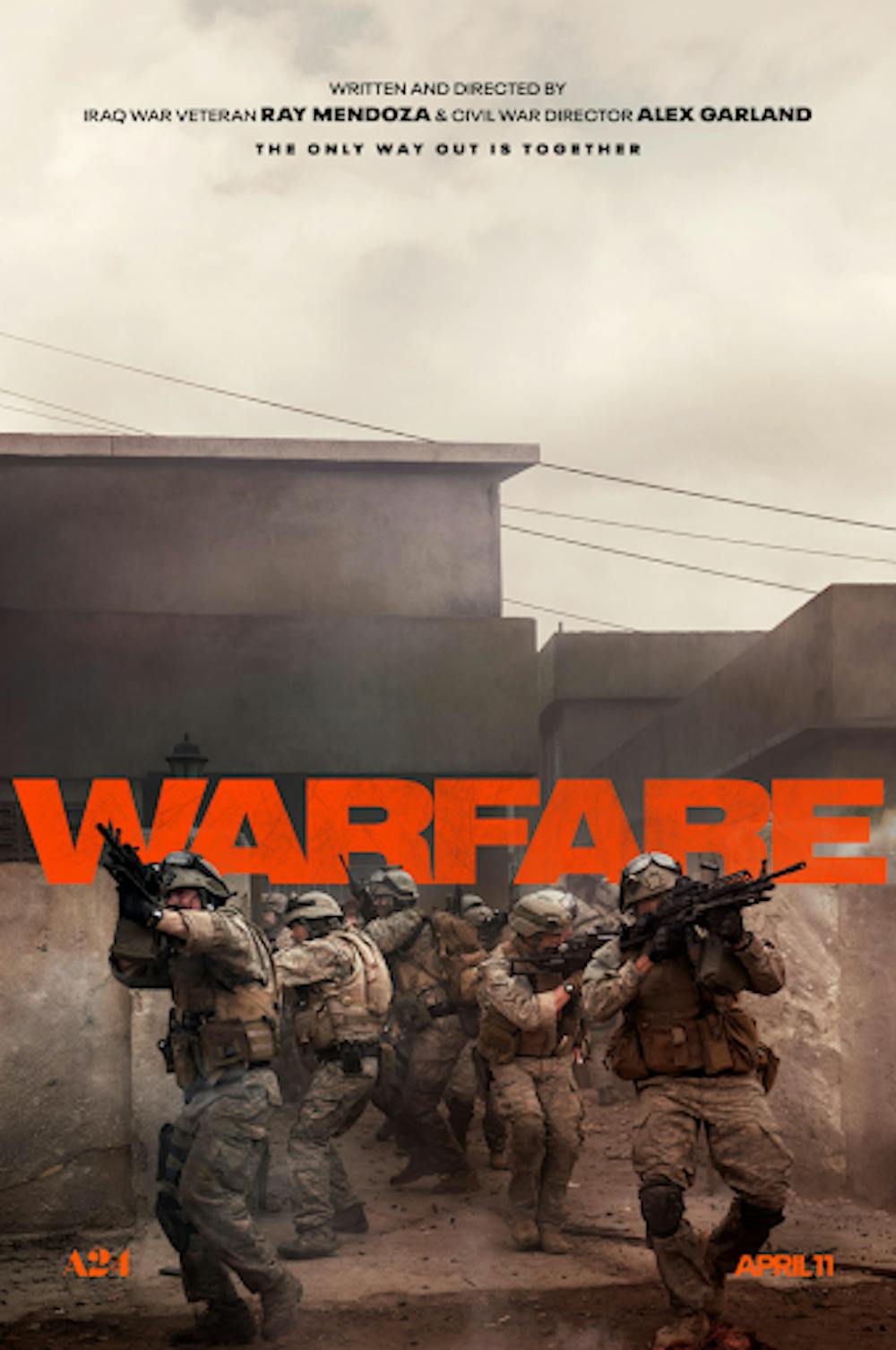By Lake DiStefano
Opinions Editor
A24’s new film “Warfare” was recently released on April 11, and the film has caused some interesting discourse online. Before the film’s release, the star-studded cast, including the likes of “Stranger Things” star Joseph Quinn and Kit Connor from Netflix’s “Heartstopper,” drew a lot of attention to the project — with many expressing initial concerns about the ethical nature of a war film told strictly from an American perspective.
“Warfare” was written and directed by Ray Mendoza and Alex Garland, with the film being based on Mendoza's experience as a United States Navy Seal deployed during the Iraq War. In this sense, the film is a passion project, with its plot being an attempt at a faithful reenactment of an encounter he and his platoon experienced on Nov. 19, 2006, in the wake of the Battle of Ramadi.
Many felt that the film would very shamelessly slot into the genre of overly-glorified bloodbath blockbusters, which many argue often function mostly as pro-war propaganda, never really portraying the nuanced effects such a geo-political conflict can cause civilians.
After watching the film, with this critique in mind, I was immediately struck by just how dull the film’s presentation was. There’s something really interesting about how deeply boring this film is. Nothing really happens, with the plot mostly consisting of the soldiers hiding and tending to their wounded.
Furthermore, there is a shocking lack of on-screen deaths, with only one up-close shot of a dead body following an explosion. The gore in this film is understated in a way that is often unbecoming of Hollywood blockbusters.
There’s also some interesting commentary with the popular male celebrity castings, given the fact that none of them get to have any characterization whatsoever. Quinn’s character in particular spends the latter half of the film screaming in the background, following an explosion which has left him immobile.
If I’m being generous, this could be interpreted as commentary on how young men who feel listless often end up joining the military for this idea of promised brotherhood, which the film shows during its opening scene of the soldiers doing chants reminiscent of a fraternity, only to be met with this artificial camaraderie. None of these people are brothers, they’re not even people. They’re just war machines — pawns in a game they have no stakes in.
The big question this film keeps asking, subtly at times and not so much in others, is: why?
Details throughout the film suggest this, such as the soldiers referring to the enemy gunmen as the “bad guys,” and the way the film completely glosses over their takeover of an Iraqi family home. The soldiers take the family hostage, and their screams fill the background, much like Quinn’s character, throughout the second half of the film.
This is all to say that I find it important to consider art in the context of what it’s trying to achieve. These choices, combined with the fact that this is near-entirely autobiographical, give me the sense that it’s meant to be an objective re-creation of a soldier’s perspective — propaganda and all.
This is how they think, and while becoming pro-military propaganda is always a pitfall these types of movies can easily fall into, this one feels too boring to be that. Of course, there isn’t some greater commentary on the ethics of the war with Iraq. They don’t think about that while shooting, and if that’s a bad thing, well, they certainly weren't going to question that at the moment.
The film acts as a blank slate in a way, with the viewer being able to project whatever interpretation one wants onto the film. You can read it as propaganda that’s self-aware, or a staunch anti-war critique on violence of this nature.
The bare-bones presentation reminds one more of a documentary than an action movie in this way; I know I certainly wasn’t accustomed to the sheer lack of loud noises and cinematic music to accompany the sparse moments of actual action.
While I can’t say it’s a pleasant experience in terms of actually watching — due to long expanses of scenes where they are simply scoping out the scene with nothing happening — given the autobiographical elements, it certainly has merit as a piece of art.
Mendoza created a film about what it was like in that moment for him, and that, I feel, justifies the art in and of itself. He recreated the common American soldier’s mindset in the form of this film, and all the interpretations one can have coming away from this film are, personally, what interests me the most.







